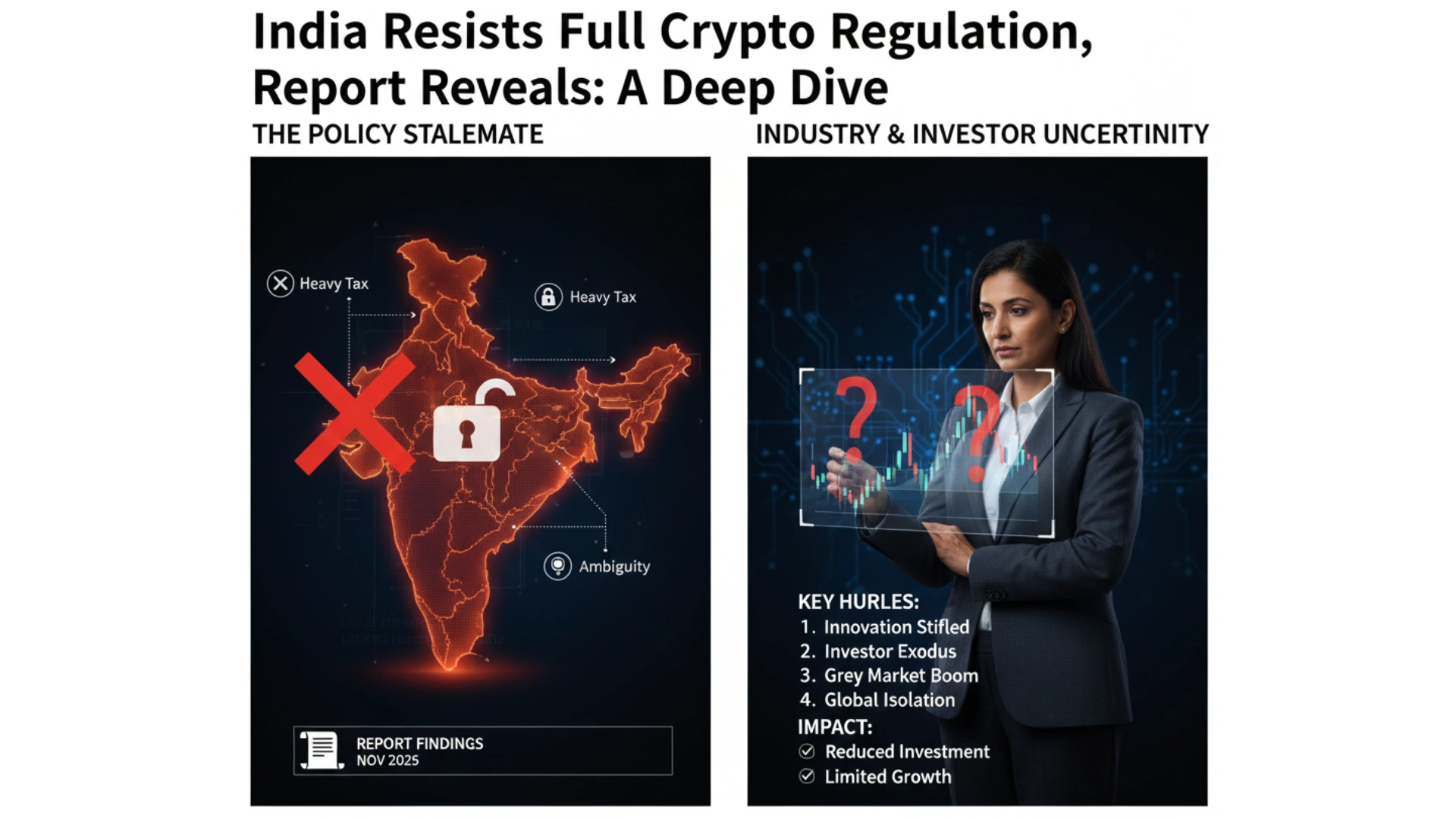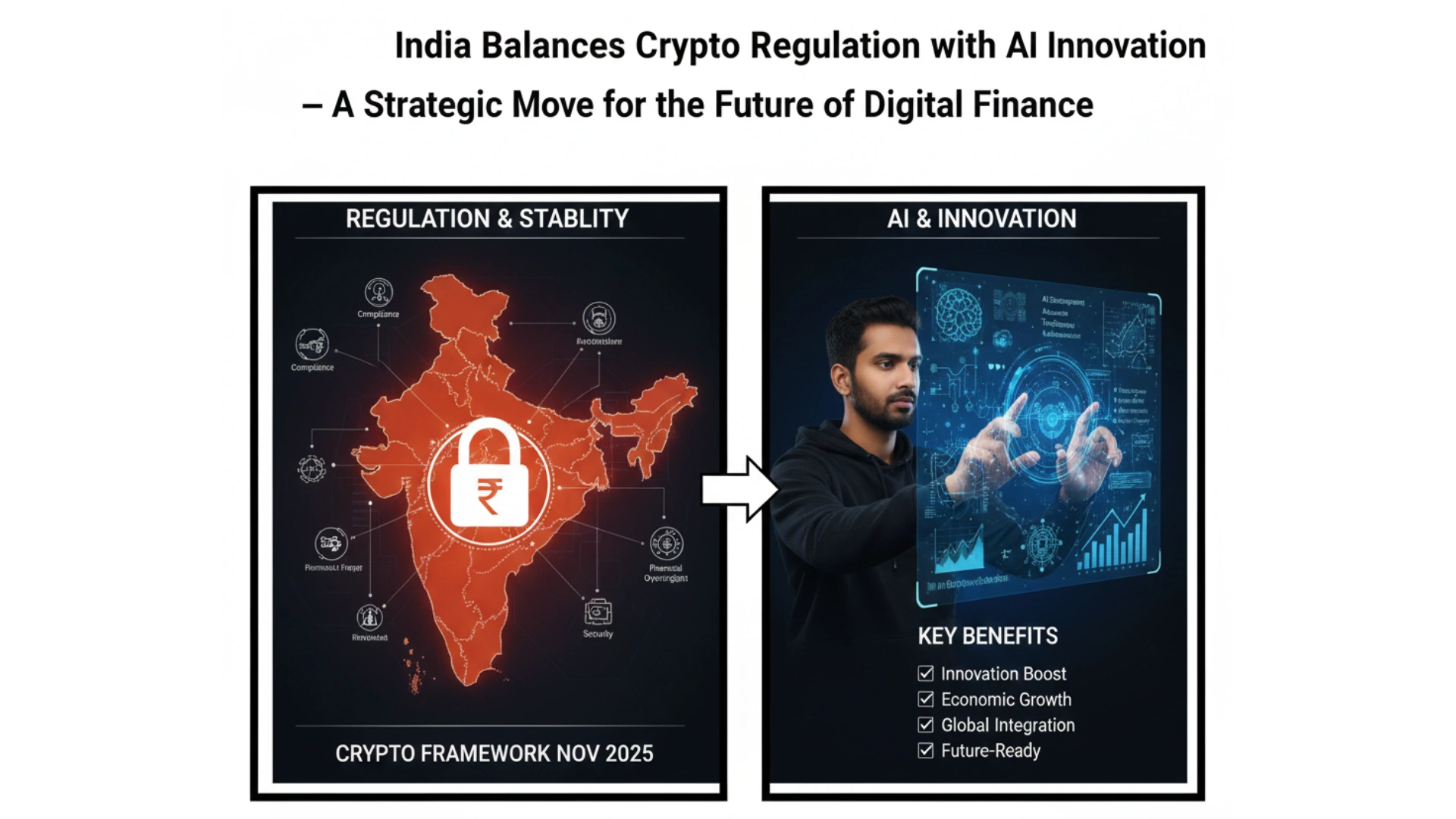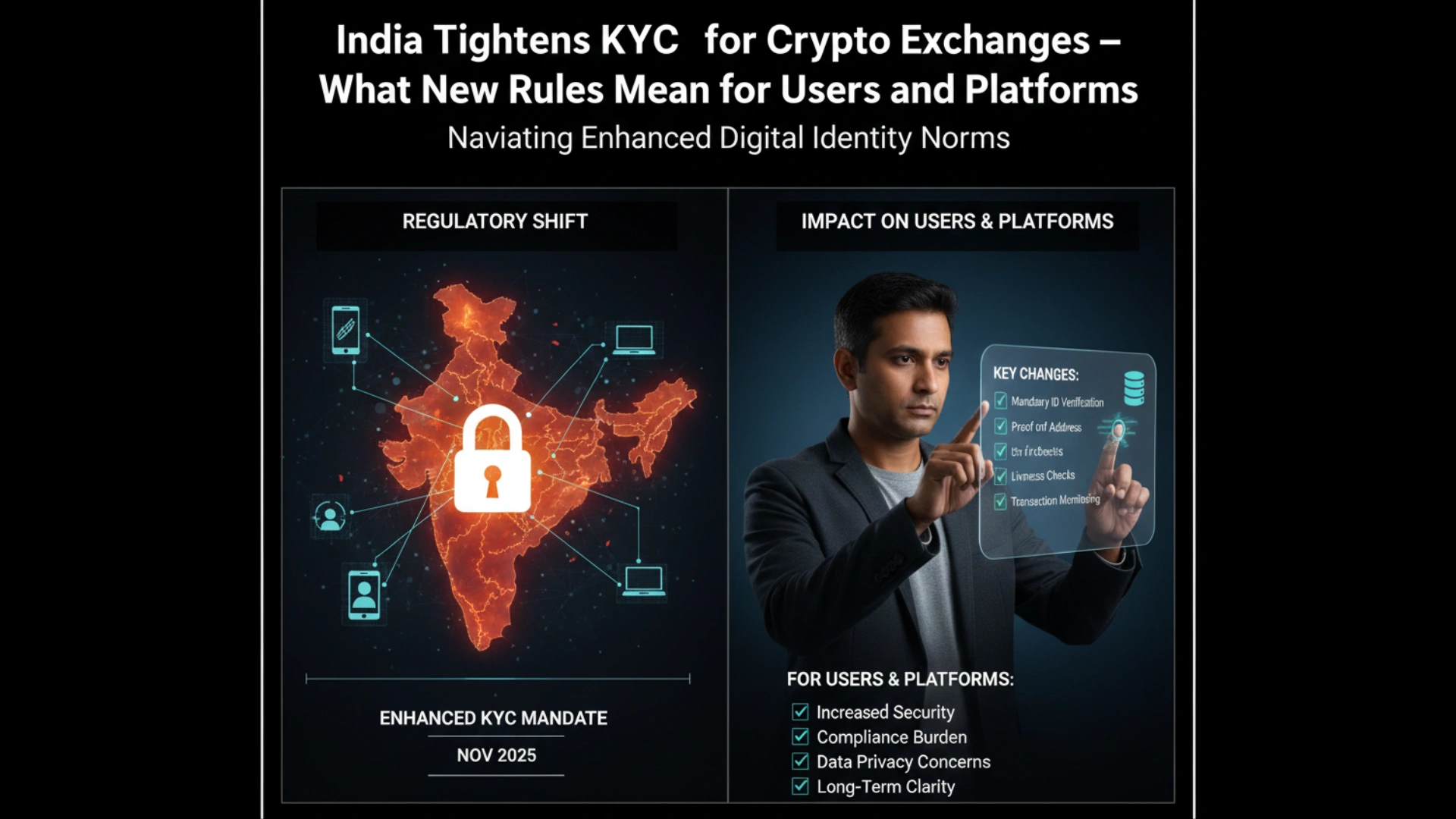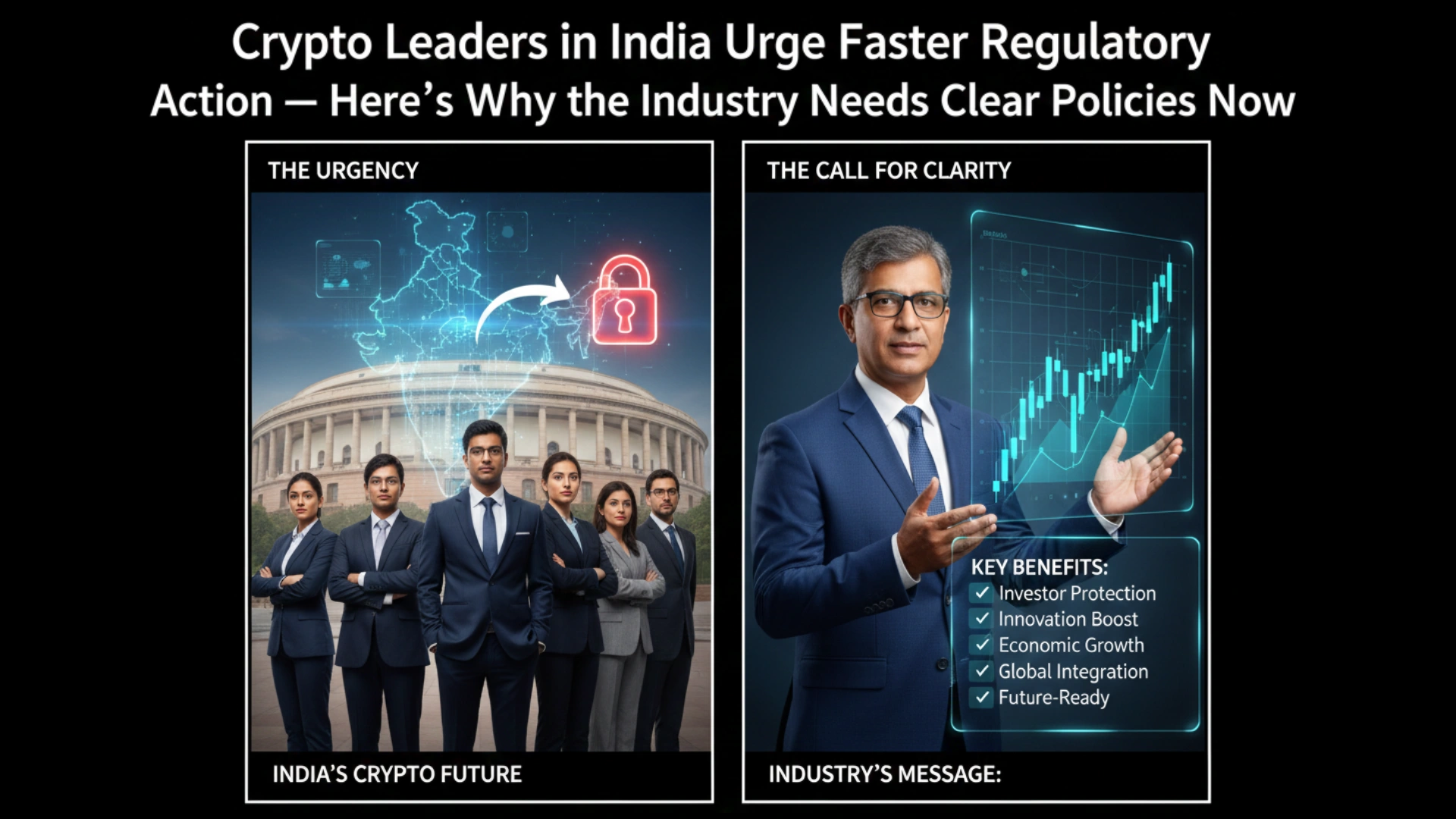With millions of investors, thousands of Web3 startups, and some of the world’s brightest blockchain developers, India is one of the fastest-growing crypto markets. Yet the industry faces unclear rules, high taxes, and regulatory confusion.
Top crypto leaders, exchange founders, and Web3 innovators in India are urging the government to speed up regulation, define clear rules, and position India as a global hub for blockchain innovation.
Why India Needs Faster Cryptocurrency Regulation
Despite massive adoption, India still does not have a clear regulatory framework for cryptocurrency. The industry currently operates under indirect rules like:
- 30% tax on crypto income
- 1% TDS on every transaction
- Banking and compliance restrictions
Crypto leaders say this uncertainty creates:
- Fear among investors
- Operational challenges for exchanges
- Lack of institutional participation
- Startups shifting to Dubai, Singapore, or Europe
- Confusion about Web3 development and tokenization
What Indian Crypto Leaders Are Demanding
1. A Dedicated Crypto Regulation Bill
Industry groups want a law that clearly defines:
- What is considered a cryptocurrency?
- How should exchanges operate?
- How will investor protection work?
- What types of digital assets are legally allowed?
- How tokenized assets and RWAs will be regulated?
2. Reduction or Restructuring of Crypto Taxes
Current taxes are considered extremely harsh:
- 30% flat tax on crypto profits
- No loss offset allowed
- 1% TDS reduces liquidity
- Burdens retail traders and small businesses
This pushes users toward:
- Foreign exchanges
- P2P trading
- Unregulated platforms
Crypto leaders suggest:
- 5–10% capital gains tax
- TDS reduced to 0.01%
- Loss-offset facility
3. Clear Rules for Web3, NFTs & Tokenization
Developers need clarity on:
- NFT legality
- Tokenized asset regulations
- Smart contract validity
- DAO structures
- Digital ownership laws
The sector wants rules covering:
- RWA tokenization
- NFT marketplaces
- Blockchain-based financial products
- Web3 startup classifications
4. Licensing Framework for Crypto Exchanges
Like the UAE, Hong Kong, and Singapore, Indian leaders want clear exchange licensing covering:
- Crypto service provider licenses
- Standard compliance rules
- Regulatory body for monitoring
- Token issuers, custodians, wallet providers
This will strengthen investor safety and reduce scams.
5. Support Innovation Instead of Restricting It
The focus should be:
- Innovation first
- Safety second
Not blanket bans or extreme taxation.
Strong regulation will attract:
- Global investors
- Talent
- International exchanges
- Major Web3 projects
- Blockchain capital
Why India Must Regulate Quickly
1. India Risks Falling Behind Global Markets
Other regions are moving fast:
- EU passed MiCA
- Hong Kong reopened retail crypto trading
- Singapore implemented clear crypto rules
- UAE created a Web3-friendly legal system
2. Investors Need Protection from Fraud
Regulation will ensure:
- Verified transactions
- Safe asset storage
- Transparency
- KYC/AML compliance
- Consumer awareness
3. Huge Economic Opportunity for India
India has:
- Millions of crypto investors
- Elite tech talent
- Strong fintech ecosystem
- Young digital population
Lack of regulation pushes startups overseas.
4. Rising Government & Corporate Blockchain Adoption
Blockchain is growing in:
- Banking
- Insurance
- Supply chain
- Digital identity
- Real estate
- Government documentation
Impact on India’s Crypto Landscape
Short-Term Effects
- Higher trading volumes
- Retail investors returning
- More exchange registrations
- Web3 job growth
Long-Term Outcomes
- India becomes a global Web3 leader
- Billions in Web3 economic growth
- Large institutional investment inflow
- Blockchain adoption across industries






